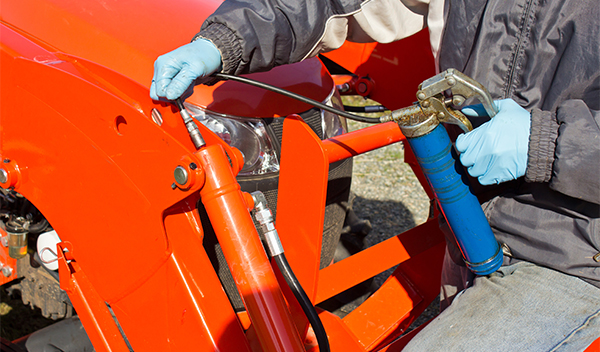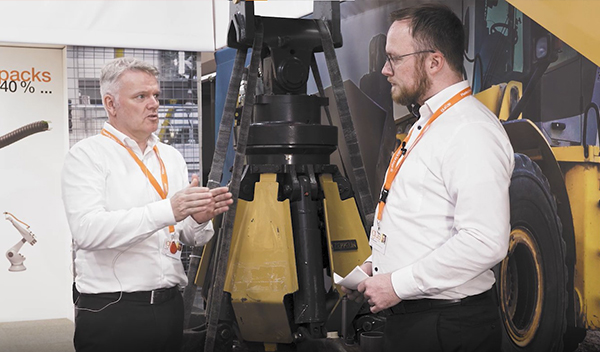Interview: how to avoid complaints due to lack of lubrication
Marc Preinesberger | 15. July 2022
Four questions for Uwe Sund, Product Manager for iglidur® Heavy-Duty Bearings
Premature machine failures pose major problems -not only for users. For manufacturers, image and thus sales are quickly at stake. This makes the situation all the more difficult in the event of damage caused by insufficient maintenance work. The “root cause end user” poses major challenges for service departments worldwide. Shell Lubricants carried out a survey among machine operators in the international construction industry; half of the respondents reported frequent failures due to insufficient lubrication.
At the same time, just over 30% stated that regular lubrication was given priority. As a result, more and more product developers are looking for ways to make the maintenance of machines and vehicles easier and safer. As an industry expert and Product Manager for Heavy-Duty Bearings at igus GmbH, Uwe Sund meets these challenges daily in cooperation with manufacturers of machines and vehicles for agriculture, construction and forestry.

Interview with Uwe Sund
Mr. Sund, can you describe the discussions dealing with lubrication? Who do you speak to?
I usually talk to product managers and development engineers who are responsible for the affected assemblies – from hydraulic connections or excavator buckets to power lifts on tractors.
Sometimes, these discussions involve more exotic things, such as crane booms on assembly ships at sea. Frequent topics are, for example,
- How often do the bearings need to be lubricated?
- What happens if customers don’t keep to these intervals?
- What happens then? How do their customers deal with this?

Do these cases end up as complaints at the service department, leading to the visit of a technician?
Correct. Complaints arrive at the service department. The service technician drives out and takes a look at everything. And then troubleshooting begins.
Troubleshooting?
Exactly. After all, it’s not just a matter of replacing the damaged parts as quickly as possible. It is also about root causes and, in the end, simply questions of liability. Who has to pay? When the service technician examines and replaces the parts, all bearings are often lubricated with grease in an exemplary manner. Nevertheless, the bearing pin is completely worn out, or the metal bearings’ running surfaces are severely damaged because the bearing points haven’t been lubricated regularly.
If the bearing pin then has to be replaced and, in the worst case, sent halfway around the world, a lot of money and time is involved. The causes are often simply a lack of or incorrect lubrication by the user. However, this is often very hard to prove.
And even if you can: the user has long since ticked off the machine as unreliable or maintenance-intensive. And the buyer or dispatcher sets out to find a low-maintenance alternative.
That is exactly the problem. Sales and marketing departments then get involved in the manufacturer’s service department. “They are good customers. We can’t risk offending them. We should be obliging with this issue.” This is where product and development managers appear on the scene. A solution must be found to reduce excessive service costs and – first and foremost, of course – to increase customer satisfaction and competitiveness.

You have questions about the topic?
Click here to contact us
And then you’re on site? Why?
Our plain bearing solutions can often provide a remedy. They do not require any lubrication for operation because our plastic plain bearings already contain solid lubricants. Although continuing lubrication improves the protection against dirt and dust as well as the corrosion protection of the rest of the bearing point, the bearings will never fail due to insufficient lubrication or damage the bearing pins. Our plain bearings simply do not know the term lack of lubrication. Costs for complaints can thus be saved – not to mention the fact that manufacturers gain a real competitive advantage through machines that are easier to clean.
Thank you, Mr. Sund!
You’re welcome.
The interview was conducted by Lars Butenschön, Product Marketing Manager iglidur®

